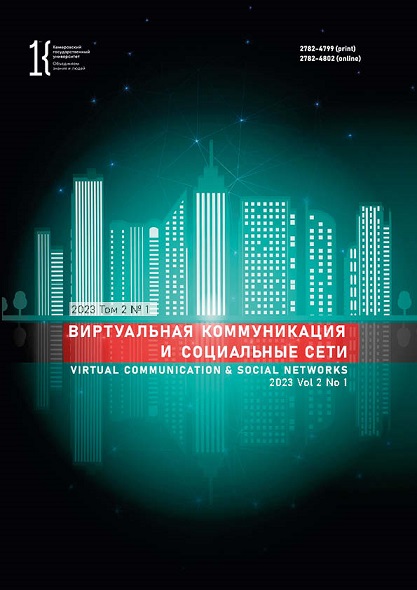Ufa, Russian Federation
Ufa, Russian Federation
Ufa, Russian Federation
The article describes the generation of centennials aka Generation Z and their role in literary creativity. Digital technologies have a great impact on their reading habits. The research featured the phenomenon of neterature, or network literature, and the role of Chinese centennials in it. The authors defined the concept of generation Z and compared traditional literature with online literature. They used such sites as Yi En Consulting and Qidian to give a brief history of Chinese neterature, which they divided into three main periods. Centennials rely on random choice and prefer contemporary literature, mainly fantasy, chronofantasy, and romance. Centennial online authors and readers are of approximately the same age and share the same values, upbringing, literary preferences, and interests, which makes it easier for the writers to meet the market needs. Online literature is not an alternative to traditional literature, but rather its next evolution stage. Currently, it is the most dynamic part of literature, and its influence on the young generation can hardly be overestimated.
social networks, generation Z, network literature, neterature, internet literature, traditional literature, China
1. Bekmemeteva R. S. China's Net Literature. Asia-Pacific Region: history and present day - X: Proc. Intern. Sci.-Prac. Conf. of Young Scientists, Ulan-Ude, 19-21 May 2016. Ulan-Ude: BSU, 2016, 164-166. (In Russ.)] https://elibrary.ru/zgtkgx
2. Kondratovich A. G. What a university library should know about its users - generation Z? Management of university libraries. Library in university education: Proc. XXI Intern. Sci.-Prac. Conf., Minsk, 19-20 May 2021. Minsk: BSU, 2021, 43-49. (In Russ.)] https://www.elibrary.ru/ljrncf
3. Designing an image of the future. Book two. Social studies of the metropolis through the eyes of the centennials, ed. Galiullina S. D. Ufa: USPTU, 2022, 104. (In Russ.)]
4. Mirzakarimova Z. V. "Traditional" and "network" literature in the information space. Internet-prostranstvo kak vyzov nauchnomu soobshchestvu XXI veka, 2021, (1): 32-36. (In Russ.)] https://doi.org/10.24412/cl-36373-2021-1-32-36
5. Novykh T. N. Generation Z in the library: how to spark the interest in reading in 8 seconds. Library through the century: author, reader, keeper: Proc. Intern. Sci.-Research Conf., Vologda, 30-31 May 2019. Vologoda: Vologodskaya oblastnaya universalnaya nauchnaya biblioteka im. I. V. Babushkina, 2019, 55-58. (In Russ.)] https://elibrary.ru/hwrxko
6. Sarin L. Electronic literature as an artistic phenomenon: between post-modernism and mass culture. Prepodavatel XXI vek, 2016, (3): 433-440. (In Russ.)] https://elibrary.ru/wqsbnj
7. Tretyakova V. S., Tserkovnikova N. G. Digital generation: losses and gains. Vocational Education and Labour Market, 2021, (2): 53-65. (In Russ.)] https://doi.org/10.52944/PORT.2021.45.2.004
8. Bresler M., Galiullina S., Gerasimova D. Transformation of the values of generation Z - residents of the digital society of sustainable development. E3S Web of Conferences, 2020, 208. https://doi.org/10.1051/e3sconf/202020809043
9. Rabogoshvili A. A., Bresler M. G., Galiullina S. D., Gerasimova D. I., Safina E. A. Global similarities and glocal differences of generation Z in China, the US, and Russia: comparative analysis. Bulletin USPTU. Science, education, economy. Series economy, 2022, (3): 99-109. https://doi.org/10.17122/2541-8904-2022-3-41-99-109
10. The aesthetics of net literature: writing, reading and playing in programmable media, eds. Gendolla P., Schäfer J. Transcript, 2007, 394. URL: http://www.jstor.org/stable/j.ctv371cnc4 (accessed 19 Jan 2023).
11. Xiao J., Chen D., Tang Q., Suo L., Zhou X., Wang W., Zheng W., Zhou M. 2020 Report on the development of Chinese Internet literature. New Techno Humanities, 2022, 2(1): 1-12. https://doi.org/10.1016/j.techum.2022.100004















